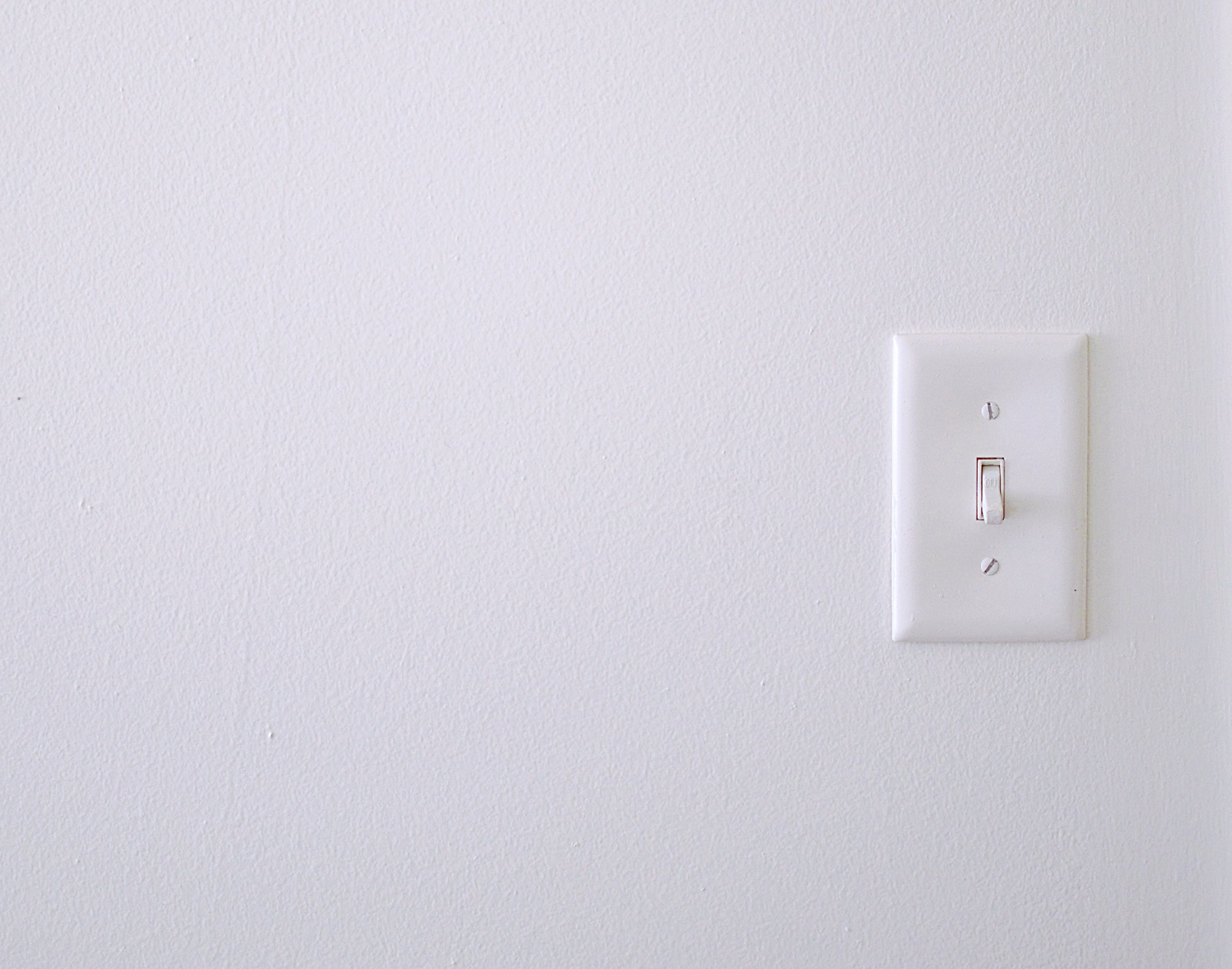Light switches are a mundane part of everyday life–most people flip them at least four times a day, though we don’t think about it when we do. And you shouldn’t have to think about it! We flip a switch – and the only thing we expect to happen is for the lights to turn on or off. It is jarring and immediately concerning when something unexpected such as a buzz or small shock occurs. So what does it mean if you receive a small shock when touching your light switch?
Light Switch Shock Possibilities
It Could be Benign: One possibility is that the light switch’s electricity did not cause the shock at all, but instead is due to the transfer of static electricity between your finger and the metal screws of the switch. This is most likely to happen in rooms with carpet or when the air is drier during the winter. Most people have felt a static shock before and understand how it feels–a quick, light, and generally painless zap.
It May Be More Serious: However, if you feel a spark that seems more substantial, longer-lasting, or more painful than a shock from static electricity, that indicates a bigger problem. It could be that the light switch is outdated. If you live in an older home, the original owners may have never replaced the majority of the wiring. Old wires can wear down over time with use, causing issues such as electric shocks. Older wiring systems also used two-prong outlets instead of today’s three-prong ones. That third prong is for the ground wire, which serves as protection for the user. Excess electricity that would be sent outward with a two-prong outlet is instead safely directed into the ground. If you have many two-prong outlets in your home, it is good to have an electrician install an outlet fitted for three prongs so that you have that extra layer of protection.
Faulty wiring is also a possibility. Electricity flows through a long path before it reaches the outlet, and faults occurring anywhere along that path can result in electric shock. It may be that the wires are loose or fraying, resulting in surges in the electricity or arc faults where sparks occur. Loose screws or faulty switches in the breaker panel itself can also cause fluctuations and sparks in outlets along the circuit. This will be most evident when you plug an appliance into the affected outlet.
Your appliances may be causing the shock. An appliance with a frayed wire may deliver a shock to you when plugged into the outlet. The same may occur when the insulation around the wire is damaged. Be sure to regularly inspect the wires of your appliances to check for issues so that you help prevent sparks or fires from causing damage.
You should also always take the proper precautions to protect yourself from any outlet. Dry your hands thoroughly before going near an outlet to eliminate the possibility of leftover water droplets conducting an electrical charge to you. Any water source should be stored away from outlets. Any outlets that are likely to come into contact with water (i.e. those in the bathroom, kitchen, and exterior of the home) need to be connected to a GFCI. Outlets that aren’t in use should be protected with plastic covers.
Finally, always have a professional electrician come to diagnose any issues you suspect with your electrical system so that both you and your home are as safe as possible. Promise Electric employs a team of master electricians experienced in residential and commercial electrical projects. Call today for any electrical concerns you may have.



